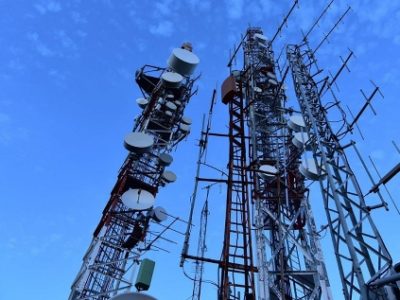Golepji David Wambutda writes that Nigeria’s need for data privacy protection is a means to foster national security and enhance economic competitiveness.
Ahead of the inauguration of the Nigeria Data Protection (NDP) Act General Application and Implementation Directive (GAID) Drafting Committee it is worthy of note that over the years, the Information and Communication Technology (ICT) sector made phenomenal contributions to the Gross Domestic Product (GDP) of Nigeria. Such insights further show that digital technologies and data are increasingly evolving into massive enablers of socio-economic development in financial services, Health Services, education, agriculture/agribusiness, food security, manufacturing, mobility, trade and infrastructure, and the digital economy in general.
RELATED: The essence of data protection in a consolidated digitized economy
With the exponential growth of the Digital Economy, the channels of interaction between Government to Government, Government to Citizens, and Business to Business, Business Customers keep harnessing massive data.
While the digital economy allows potential companies and consumers to connect more quickly, more efficiently, and more meaningfully to the products, services, and experiences they value it has become pertinent for such data to be protected and used safely.
Data privacy infringement
Several years ago Nigeria recorded data privacy infringement. For example in 2020, there was a SIM card registration data violation, It was declared that the personal data of millions of Nigerian mobile phone users, obtained during SIM card registration, was being sold on the black market. This violation exposed sensitive personal information, such as names, addresses, phone numbers, and National Identification Numbers (NINs), putting individuals at risk of identity theft and other forms of fraud.
Similarly, Voter data leakage was also reported in 2019, During the general elections, worries were raised about the leakages of voter data. Several political parties were blamed for using voter data for targeted political messaging, which violated the privacy rights of citizens.
In 2017, a Nigerian medical diagnostics company suffered a data violation leading to the exposure of sensitive medical histories and personally identifiable information (PII) of thousands of patients. This infringement not only compromised the privacy of individuals but also potentially exposed them to diverse risks, including medical forgery.
Recently FINTECH companies and establishments in Nigeria have been accused of sharing client data with third parties without fair consent or safeguards. Such data sharing may result in people being subjected to unsolicited marketing campaigns and even facing financial fraud.
In a bid to address these growing challenges and vulnerabilities, President Bola Ahmed Tinubu signed the Nigeria Data Protection Bill, 2023, into law. The Nigeria Data Protection Act 2023 provides a legal framework for safeguarding personal information and the practice of data protection in Nigeria.
Proactive steps to strengthen data protection
In a recent workshop with stakeholders, Bosun Tijani asserted that
“We are taking proactive steps to strengthen our data protection framework as evident in the setting up of NDPC.
“We are working with stakeholders including the national assembly to enact robust data protection laws that are aligned with international standards.
“We will also normalize the culture of transparency among our citizens so that everyone is fully aware of how his data is used.”
Therefore the Nigeria Data Protection (NDP) Act General Application and Implementation Directive (GAID) is a Nigerian directive that specifies the rules of engagement.
The Act empowers the Commission to create regulations requiring data controllers and data processors to notify it of the measures in place to guarantee the protection of personal data in cross-border transfer and to explain the adequacy of such measures.
This is in line with Global regulatory compliance as Numerous nations are focused on data privacy protection to align with international standards and regulations. For instance, the European Union’s General Data Protection Regulation (GDPR) sets forth strict rules on the collection, storage, and processing of personal data. By adhering to these standards, nations can facilitate cross-border data flows, promote international cooperation, and ensure data protection for citizens even in a globalized world.
It is also important for Nigeria as a means to preserve national security. As Data privacy protection is essential, nations also need to strike an equilibrium between privacy and national security concerns. By having powerful data privacy laws and regulations, governments can ensure that national security measures do not infringe excessively on individual privacy rights.
Data privacy security to stimulate trust
Data privacy security is also crucial for stimulating trust in digital services and e-commerce. When individuals have confidence that their data will be governed with care and esteem, they are more likely to engage in online transactions and share information, leading to economic growth and innovation in an era of high modernity. This will also guarantee economic competitiveness thereby boosting foreign direct investment in Nigeria.
In General, data privacy protection is crucial for safeguarding individual rights, preventing cybercrime, promoting economic development, complying with transnational regulations, and maintaining a proper harmony between privacy and national security.

Wambutda is a Content Editor & IT Project Manager





























